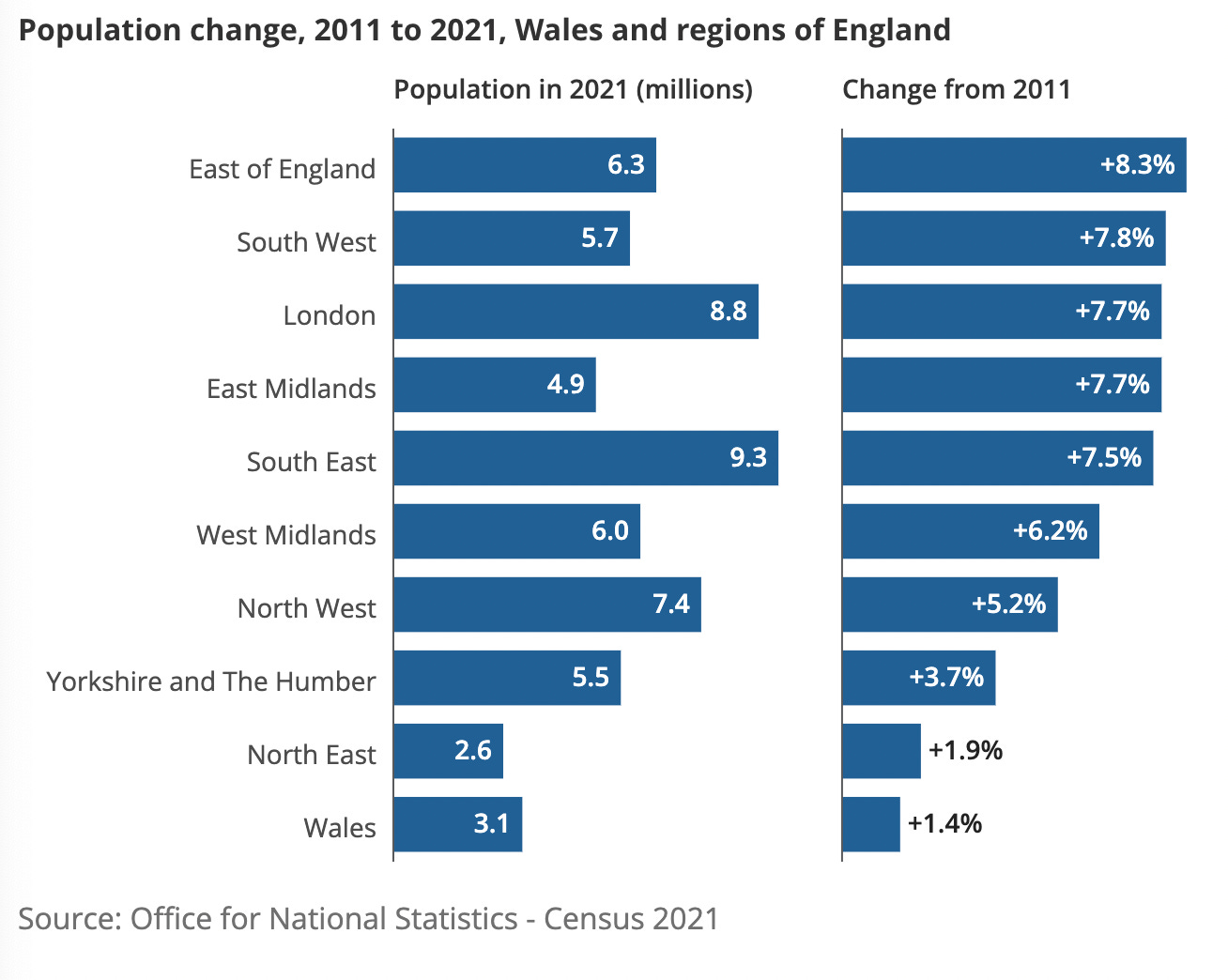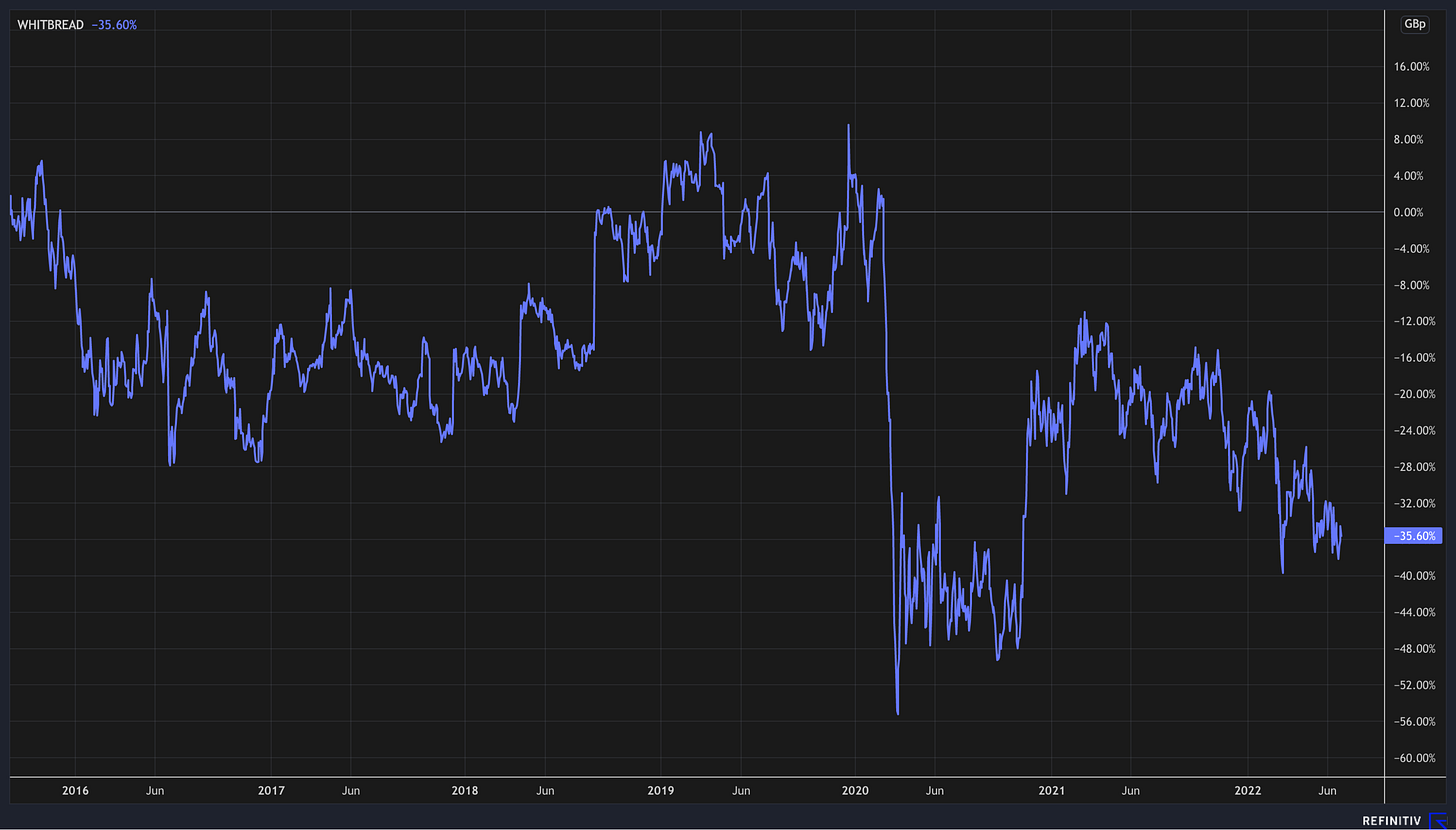Is Elon Musk right?
About falling populations...
Alongside electric cars, buying Twitter, getting humans to Mars and building tunnels, population growth is one of Elon Musk’s pet projects. To be more precise, spreading concern about declining populations and dropping birth rates. This tweet, for instance, was earlier this month…


There have been other tweets too, like this one criticising UN projections of a rising global population…

And he has even pinned this tweet to the top of his Twitter profile…
His concern is what this could mean for the global economy, workforces and the development of new ideas. He has previously warned of the downsides of living forever and people living longer (seriously), saying last year: “It is important for us to die because most of the time people don't change their mind, they just die. If you live forever, we might become a very ossified society where new ideas cannot succeed."
Many others would say there are benefits to population growth slowing or even going into reverse, namely helping the environment and cutting carbon emissions. Others may feel uncomfortable discussing the topic at all. Musk, for what it’s worth, disputes that the number of humans on the planet is unsustainable and says population density is “actually quite low”.
I don’t want to get into the pros and cons of the population falling, but I do want to look at whether it is happening, because it is important in shaping local and national policies and business strategies. Plus, the Office for National Statistics has just published the first results from the 2021 Census for England and Wales, which give us a whole collection of new data to look at…
Much of the coverage of the census so far has focused on the 6.3 per cent increase in the population of England and Wales since 2011, a rise from 56.1 million to 59.6 million in 2021. This is the largest ever population ever recorded, as you can see from this graph…
However, only 42.5 per cent of the population growth was from births, with the remaining 57.5 per cent from positive net migration into England and Wales. As this separate chart from the ONS shows, birth rates - the total fertility rate as the ONS classifies it – have been falling over the last decade, apart from a slight pick-up last year on the back of a Covid-related drop in 2020…
This graph shows the trend over a longer period…
So while the census shows that there are still more births than deaths in England and Wales (6.8 million v 5.3 million) it also shows that the combination of a slowing birth rate and ageing population is having a clear impact. For instance, there are now more people aged 65-years-old-and-over than those aged 15-or-under – 11.1 million versus 10.4 million. The number of people in England and Wales who are 65-or-older has gone from 9.2 million in 2011 to 11.1 million in 2021, this is the equivalent of 16.4 per cent of the population in 2011 to 18.6 per cent now. There are also more people 90-years-old-or-older – 527,900 in 2021 compared to 429,017 in 2011. In contrast, the number of children under four-years-old has dropped 7.6 per cent from 3.5 million in 2011 to 3.2 million in 2021.
This all suggests that Musk may be on to something on population. If current trends continue then deaths are likely to outnumber births in England and Wales at some point in the future. Musk has not spoken specifically about the UK, aiming most of his focus on the US, China and Japan, where the population is declining. However, at the very least, the ONS data shows that the UK needs to adapt to a population that is getting older. Musk has made the point that once trends like this are ingrained they are difficult to shift. Japan’s population, for instance, has fallen for 11 years in a row. The UK, remember, has a record number of job vacancies right now and many industries are struggling to find staff…
The ageing of the population is also a really important part of the story about levelling up the UK. This map shows where people 65 years and older are in the UK as a percentage of the population, the darker the colour, the higher the proportion of people 65-and-over in the area…
As you can see, the population in London is younger, with greater congregations of 65-and-overs in the south-west, Wales, north-east, north-west, and east coast. Wales and the north-east, interestingly, have also seen the slowest population growth since 2011…
Boris Johnson has said that one of the keys to levelling up is encouraging young people to stay in the town they grew up in rather than head to London for work. The census also lays out the importance of that. James Kirkup, the director of the Social Market Foundation, is among those who have called on policymakers to consider the implication of the census figures and what they could mean for local communities…


One final thing, researching this article I realised that Elon Musk has not tweeted for more than a week, which is unusual for him. I am not the only one who has noticed…
A chart that helps you understand the world
Congratulations to Dominic Paul who is leaving his role as the UK boss of Domino’s Pizza to succeed Alison Brittain as chief executive of Whitbread, owner of Premier Inn. The graph above shows the performance of Whitbread shares since Brittain joined from Lloyds Banking Group in 2015. That graph is dominated by the Covid drop in 2020, but the 2 per cent drop in Whitbread shares today is an indication of the regard in which Brittain is held by the City. Whitbread said that Brittain will stand down at the end of 2022 because she has “decided to retire from full-time executive life”. She will be remembered for overseeing the £3.9 billion sale of Costa Coffee to Coca-Cola, expanding Premier Inn into Germany, and guiding the business through the Covid-19 crisis. Paul actually led Costa prior to its sale by Whitbread, so this marks a return to the business for him. He will have to navigate Premier Inn through a slowing UK economy and decide whether Whitbread should continue in its streamlined form - the company has also sold its breweries and pubs since the turn of the century - or look to add more businesses.
You should also read this
A Spanish start-up which says it can move hydrogen more cheaply than existing methods - a key challenge if the fuel is to be used more widely in the future - has won backing from Bill Gates and Norwegian energy giant Equinor (Bloomberg, paywall)
There are now more than 1,200 lamp-post chargers for electric cars in the UK, making SureCharge the sixth largest network (The Fast Charge)
Air New Zealand is bringing lie-flat beds to economy class in 2024 (Bloomberg)
Two clips involving a crypto backer struggling to explain the usefulness of the technology to a sceptic have gone viral (The Atlantic)
And finally…
It’s Wimbledon fortnight, so tennis is on most people’s televisions in the evening. This business behind the tournament has always fascinated me, whether it is the lack of advertising, buying the golf course nextdoor to expand, or being one of the few sporting events to have insurance covering a pandemic. The Substack newsletter below has had a look at the business of Wimbledon, and how much money it might be leaving on the table each year in order to protect the long-term future of the tournament….
Thanks for reading. Off to Lunch will be back on Friday. If you want to contribute to the work of Off to Lunch, then please sign up for a paid subscription below.
Thanks again
Graham










